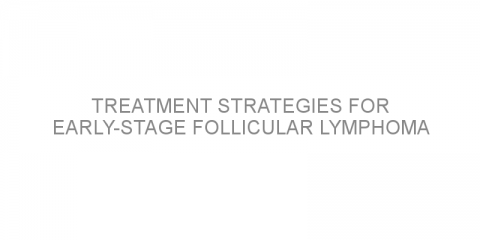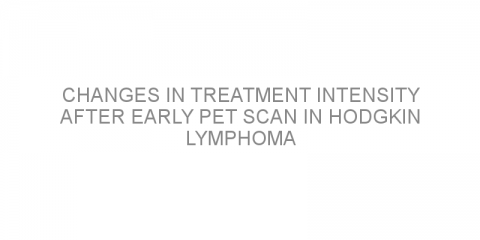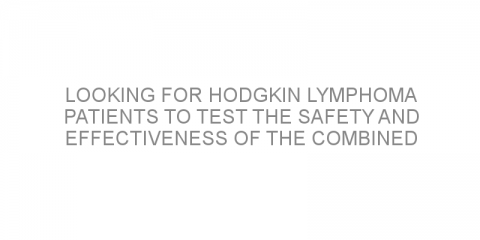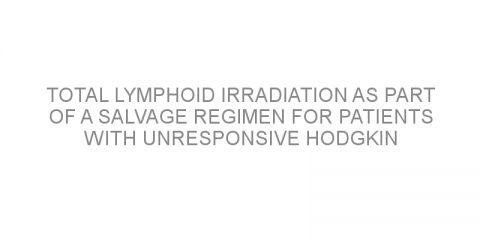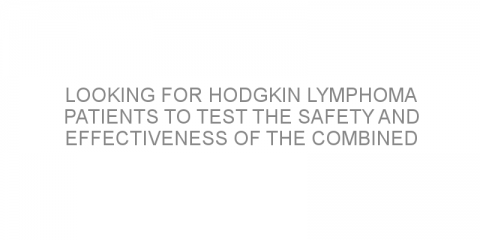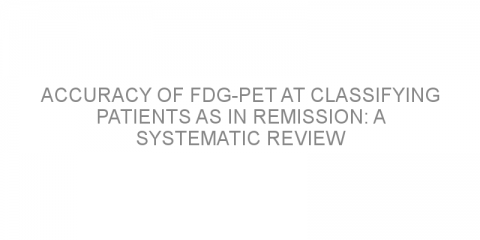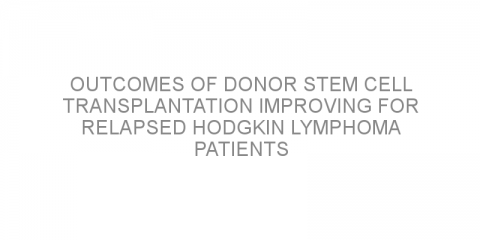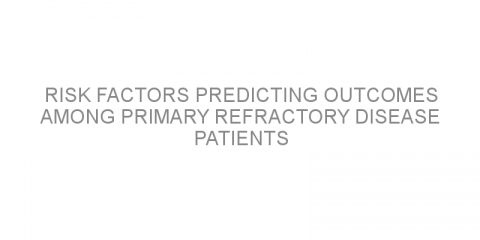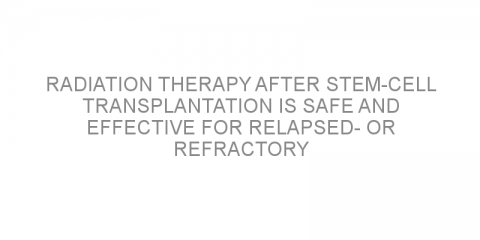In a nutshell This study compared the outcomes associated with various treatments for early-stage follicular lymphoma. This study concluded that survival was similar with watchful waiting compared to other early treatments. Some background Follicular lymphoma (FL) is the most common form of slow-growing non-Hodgkin lymphoma. Less than 20% of...
Read MoreCurrent disease status-First occurrence of the lymphoma Posts on Medivizor
Changes in treatment intensity after early PET scan in Hodgkin lymphoma
In a nutshell This study examined whether an early PET scan could identify patients who needed a different intensity of treatment. The authors concluded that patients who were switched to an increased intensity therapy after a positive early PET scan had better outcomes than patients who were treated as usual after a positive early PET...
Read MoreLooking for Hodgkin lymphoma patients to test the safety and effectiveness of the combined treatment Ibrutinib and Brentuximab Vedotin
In a nutshell This phase 2 trial aims to test the safety and effectiveness of a combined treatment with ibrutinib (Imbruvica) and brentuximab vedotin (Adcetris) in recurrent (when the cancer comes back) Hodgkin lymphoma patients or in those who did not respond to the first line of treatment. This trial is recruiting in California, United...
Read MoreTotal lymphoid irradiation as part of a salvage regimen for patients with unresponsive Hodgkin Lymphoma
In a nutshell The authors looked at the long-term results of total lymphoid irradiation for patients with relapsed or unresponsive Hodgkin lymphoma. The authors concluded that total lymphoid irradiation combined with high-dose chemotherapy is a safe and effective treatment for patients with relapsed or unresponsive Hodgkin lymphoma. Some background...
Read MoreLooking for Hodgkin lymphoma patients to test the safety and effectiveness of the combined treatment with Ibrutinib and Nivolumab
In a nutshell This phase 2 trial aims to test the safety and effectiveness of treatment with irutinib (Imbruvica) and nivolumab (Opdivo) in patients with recurrent (when the cancer comes back) Hodgkin lymphoma or that has not responded to the first line treatment. The main outcome to be measure will be the response of the cancer to treatment. This...
Read MoreAccuracy of FDG-PET at classifying patients as in remission: A systematic review
In a nutshell This review looked at the ability of F-luoro-2-deoxy-D-glucose positron emission topography (FDG-PET) to predict complete disease remission in patients with Hodgkin lymphoma who have completed first-line treatment. The authors suggested that FDG-PET may not be fully accurate at predicting remission in patients who have completed...
Read MoreOutcomes of donor stem cell transplantation improving for relapsed Hodgkin lymphoma patients
In a nutshell This study examined the outcomes of allogenic (donor) stem cell transplantation in two different time periods. The authors found that those treated in the later time period, 2009-2013, had better overall survival and fewer relapses, largely due to improvements in treatment options. Some background Hodgkin lymphoma is widely...
Read MoreRisk factors predicting outcomes among primary refractory disease patients
In a nutshell This study determined whether certain risk factors predicted outcomes in primary refractory Hodgkin lymphoma. The authors concluded that risk factors such as stage IV disease and cancer activity seen on imaging predicted worse overall outcomes. Some background Refractory disease Hodgkin lymphoma patients are those who are...
Read MoreThe impact of cancer-related fatigue on Hodgkin lymphoma patients and survivors
In a nutshell This study determined the impact of cancer-related fatigue on Hodgkin-Lymphoma patients and survivors. The authors concluded that fatigue particularly affected social integration. Some background Hodgkin-Lymphoma (HL) patients and survivors can experience persistent cancer-related fatigue. Reports of fatigue occur 2.5 to 3...
Read MoreReducing time between salvage chemotherapy cycles in relapsed or refractory Hodgkin lymphoma
In a nutshell This study determined whether a faster course of salvage chemotherapy reduced tumor volume in patients with relapsed or refractory Hodgkin lymphoma. The authors concluded that shorter intervals between SC cycles was safe and effective. Some background Hodgkin lymphoma is considered to be a highly curable form of...
Read MoreABVD versus Stanford V chemotherapy for early-stage, bulky Hodgkin lymphoma
In a nutshell This trial compared the outcomes of ABVD and Stanford-V chemotherapy in patients with stage I or stage II bulky Hodgkin lymphoma. The authors concluded that both treatments were equally effective. Some background Hodgkin Lymphoma is a cancer of the lymph system. Patients with bulky disease have tumors larger than 10 cm....
Read MoreRadiation therapy after stem-cell transplantation is safe and effective for relapsed- or refractory Hodgkin lymphoma
In a nutshell This study assessed whether patients with relapsed- or refractory Hodgkin Lymphoma should be treated with radiation therapy. The authors concluded that radiation therapy was safe and prevented the return of the disease in certain patients. Some background Hodgkin lymphoma is a cancer of the lymph system. It is a...
Read More
